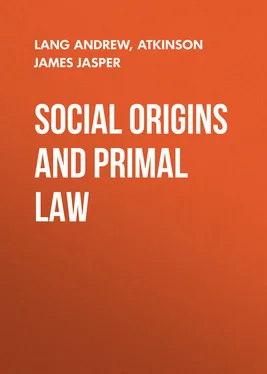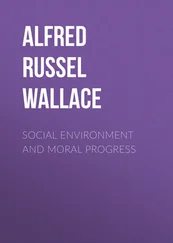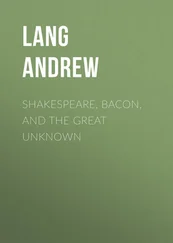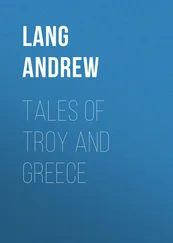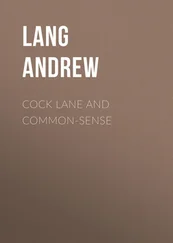Andrew Lang - Social Origins and Primal Law
Здесь есть возможность читать онлайн «Andrew Lang - Social Origins and Primal Law» — ознакомительный отрывок электронной книги совершенно бесплатно, а после прочтения отрывка купить полную версию. В некоторых случаях можно слушать аудио, скачать через торрент в формате fb2 и присутствует краткое содержание. Жанр: foreign_antique, foreign_prose, на английском языке. Описание произведения, (предисловие) а так же отзывы посетителей доступны на портале библиотеки ЛибКат.
- Название:Social Origins and Primal Law
- Автор:
- Жанр:
- Год:неизвестен
- ISBN:нет данных
- Рейтинг книги:3 / 5. Голосов: 1
-
Избранное:Добавить в избранное
- Отзывы:
-
Ваша оценка:
- 60
- 1
- 2
- 3
- 4
- 5
Social Origins and Primal Law: краткое содержание, описание и аннотация
Предлагаем к чтению аннотацию, описание, краткое содержание или предисловие (зависит от того, что написал сам автор книги «Social Origins and Primal Law»). Если вы не нашли необходимую информацию о книге — напишите в комментариях, мы постараемся отыскать её.
Social Origins and Primal Law — читать онлайн ознакомительный отрывок
Ниже представлен текст книги, разбитый по страницам. Система сохранения места последней прочитанной страницы, позволяет с удобством читать онлайн бесплатно книгу «Social Origins and Primal Law», без необходимости каждый раз заново искать на чём Вы остановились. Поставьте закладку, и сможете в любой момент перейти на страницу, на которой закончили чтение.
Интервал:
Закладка:
Thus if, at a given time, the name of a certain male ancestor is substituted, as 'eponymous,' for the totem name, or the district name, we shall find a local group of, say, Sons of Donald, into which other groups, Sons of Sorlie, or Ulrig, will enter, as occasion serves, and be more or less absorbed. A State may at last arise, say, 'Softs of Israel.'
We are not assuming, however, that all human societies have passed through the totemistic and exogamous stages.
TOTEMISM AND EXOGAMY
But what was the original unit, the totem group, or other division outside of which alone could marriages be arranged? And why was the totem name the limit? Returning to Mr. Donald McLennan's account of the opinions which his brother did not live to set forth, Totemism arose 'in a state of man in which no idea of incest existed.' On this theory, I presume, there would be totem groups before exogamy arose; before it was reckoned 'incest' to many within the totem name. This, as we shall see, appears to be sometimes the opinion of the best Australian authorities, Messrs. Fison and Howitt, and Messrs. Spencer and Gillen. It is also the theory of Arunta tradition. The totem belief, as it now exists, imposes many tabus: you may not (as a rule) kill, eat, or use the plant or animal which is your totem; still less perhaps, in the long run, may you 'use,' sexually, a woman of your totem. If this , or a kindred totem tabu, is the origin of exogamy, then to exogamy (as a law, though not necessarily as a tendency) the totem is prior in time. But I have no reason to suppose that Mr. McLennan ever regarded the totem tabu as the origin of exogamy. In his published works he offers another theory, not commonly accepted.
But the important thing to note is that exogamy may conceivably (contrary to Mr. McLennan's opinion, but in accordance with that of Mr. Atkinson) have existed, or rather tended to exist, before totems arose; much more, then, previous to the evolution of totem names, of totem tabu, and of the idea of incest, as a sin , or mystic misdeed, and as an offence to the totem – a religious offence to God, or to ancestral spirits. Persons may have been forbidden to marry within their local group, their 'fire circle' before that group had a totem, or a totem name, and they may have been forbidden for reasons purely secular, to which the totem later lent a sanction, and a definite limit. Thus Mr. Tylor, our most sagacious guide in all such problems, writes 'Exogamy can and does exist without Totemism, and for all we know was originally independent of it.' 34 34 'Remarks on Totemism,' Jour. Anthrop. Inst. , August, November, 1898.
It is part of my argument that exogamous tendencies, at least – that is, a habit of seeking female mates outside of the fire-circle – may very well have prevailed before any human group had even a totemic name. But exogamous tendencies are not, of course, the same thing as exogamy strictly defined, and sanctioned by religious or superstitious fear, and by secular penalties inflicted by the tribe. Against the notion that exogamy may have been prior to Totemism, Mr. Robertson Smith argued that very early man would not be restrained from marriages by such an abstract idea as that of kindred – 'not to marry your near kin' – while the idea of kindred was still fluid, and not yet crystallised around the totem name. 35 35 Kinship in Early Arabia , p. 187.
But, without thinking of kindred by blood, perhaps without recognising consanguinity (though it must have been recognised very soon), early man may have decided that 'thou shalt not marry within this local group or crowd, of which I am head.' Nothing abstract in that! There was no tribal law – there were as yet (I suppose) no tribes – only the will of the head of each small set of people practically enforced exogamy.
We can have no certainty on this point, for we know of no pre-totemic race, no people who certainly have not yet entered into the totemic stage. Any such people, probably, in the remote past, had no idea of incest as a sin, or of exogamy as a law sanctioned by a tabu. But they may have, at least, had a strong tendency to marry outside of the circle of the hearth, the wandering hearth of homeless nomads ranging after food.
The reader of Mr. Atkinson's treatise will find that this kind of exogamy – marriage outside the local group – would, on his theory, be the rule, even when no idea of blood kindred, or of incest as a sin, need have arisen; and no totem, or anything else, had yet been named. The cause of the prohibition would, in Mr. Atkinson's opinion, be the sexual jealousy of the hypothetical patriarchal anthropoid male animal; and, later, the sexual jealousy of his adult male offspring, and of the females. Still later the group, already in practice exogamous, would accept the totem name, marking off the group from others, and the totem name, snipe, wolf, or what not, would become, for the time, the exogamous limit. No man and woman of the same totem name could intermarry. Still later, a myth of kinship with the totem would arise, and would add the religious sanction of a tabu.
A prohibition may perhaps have arisen very early, even if Mr. Atkinson's hypothesis (that the rule of marriage outside the group arose in a state of brutality) be rejected. 'The origin of bars to marry is, in fact, complex,' writes Mr. Crawley. A dislike of marriage with a group-mate, familiar, through contiguity, from infancy, may have been developed among early men; 36 36 But, as Dr. Durkheim says, man and wife might soon abandon each other, if familiarity breeds contempt.
and may have been reinforced by the probably later superstitions which create 'sexual tabu,' and mutual avoidance, among many existing peoples. Men and women are, by savages, conceived to be mysteriously perilous to each other, especially when they live in close contiguity. Mr. Crawley also allows for Mr. Atkinson's main factor, jealousy, 'proprietary feeling, which is one crude means by which the family has been regulated and maintained.' 37 37 Journal of the Anthropological Institute , May, 1895, p. 444.
If these things were so (whether we go back to Mr. Atkinson's semi-brutal ancestors, or not), then, contrary to Mr. Donald McLennan's opinion, and to general opinion, it would not 'appear to be possible to demonstrate that Totemism preceded exogamy,' or at least preceded the exogamous tendency. For, in the first place, exogamy might conceivably tend to arise before the explicit idea of kinship – whether male or female – arose. Mr. Atkinson's 'primal law' would be unuttered in speech (speech, by his theory, there was none), but would amount to this: 'I, the patriarchal bull of this herd, will do my best to kill you, the adult young bulls, if you make any approaches to any of the cows in this crowd.' There is no notion of 'incest,' but there is jealousy producing the germ exogamy. The young bulls must find mates outside of the local herd – or do without. This rule persisted, on Mr. Atkinson's theory, till the hypothetical anthropoid became a man, and named his group (or had it named for him, as I later suggest) by a totem name.
But real human and speaking beings might enforce marriage outside of the group, though they did not perhaps think explicitly of kindred (or, at least, did not think the idea fully out), still less of 'incest,' as sin. Mr. McLennan's theory, as given in his works, was partly identical with that of Mr. Atkinson. 'The earliest human groups can have had no idea of kinship' – they must, therefore, have been rather low savages. 'But,' he said, 'they were held together by a feeling of kinship,' not yet risen into explicit consciousness. Cat and kitten have, probably, feeling of kinship, and that feeling is very strong, while it lasts, in the maternal cat, while between semi-human mothers and children, arriving so very slowly at maturity, mother-kin must have been consciously realised very early. Mr. McLennan then showed the stages by which the savage would gradually, by reflection, reach explicit consciousness of female kinship, of mother-relationship, sister and brother relationship, and all the degrees of female kin.
Читать дальшеИнтервал:
Закладка:
Похожие книги на «Social Origins and Primal Law»
Представляем Вашему вниманию похожие книги на «Social Origins and Primal Law» списком для выбора. Мы отобрали схожую по названию и смыслу литературу в надежде предоставить читателям больше вариантов отыскать новые, интересные, ещё непрочитанные произведения.
Обсуждение, отзывы о книге «Social Origins and Primal Law» и просто собственные мнения читателей. Оставьте ваши комментарии, напишите, что Вы думаете о произведении, его смысле или главных героях. Укажите что конкретно понравилось, а что нет, и почему Вы так считаете.
